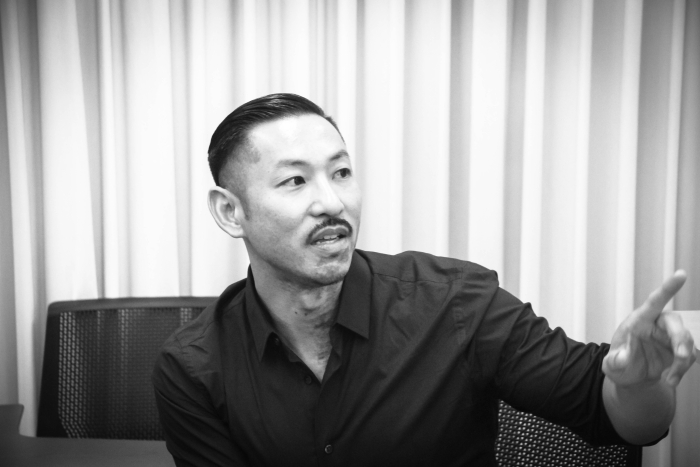Jih-Fei Cheng joins the Scripps faculty this fall as assistant professor in feminist, gender, and sexuality studies. Cheng completed his PhD in American studies and ethnicity, with an emphasis in visual studies, at the University of Southern California. His dissertation, AIDS and Its Afterlives: Race, Gender, and the Queer Radical Imagination, examines how experimental videos produced by AIDS activists during the 1980s until the mid-90s continue to politically intervene into contemporary popular media and social movements.
The Office of Marketing and Communications recently interviewed Cheng as part of our ongoing Spotlight on Faculty series.
Scripps College: What have you gleaned from your study of feminist and queer activism born from the 1980s AIDS crisis?
Jih-Fei Cheng: My background is in HIV/AIDS social services and queer of color community organizing in New York City and Los Angeles. My research turned its attention toward examining the curious remaking of AIDS history in films whose narratives focused almost exclusively on the triumphal spirit of white male activism who mainly fought for AIDS drugs. The truth is that a significant amount of archival AIDS activist video footage was shot by and about women and queer of color activists, including the footage that appears in today’s movies about white men.
These revisions of the AIDS past stigmatize women and people of color and imply that the solution to the global pandemic lies in the examples set by white men who helped to pioneer and obtain life-extending medications. This popular narrative has deadly consequences. AIDS activism has never only been about biomedical solutions. AIDS, feminist, and queer activisms also sought to address historical racism, sexism, homophobia, transphobia, and the globalized structural inequities that create barriers to healthcare access. None of these things are addressed by same-sex marriage, gay military participation, or new HIV medications, but instead are exacerbated by the complicity of the U.S. government and public that likes to believe in narratives of political progress at all cost.
I felt it was important to recall the anti-racist, feminist, and queer AIDS activists’ demand for universal housing and healthcare and the end to war and capitalism.
SC: Tell us about your interest in media culture—how does that translate in the classroom?
JC: AIDS video activist Alexandra Juhasz, professor of media studies at Pitzer College, points out in her book AIDS TV: Identity, Community, and Alternative Video (1995) that AIDS activists were the first U.S. social movement actors to pick up the handheld camera and to use it in direct action protest. I constantly connect the scholarship and topics we engage in class back to contemporary examples of media technologies and their usage in generating political representations. I encourage students to consider their role in media production and consumption, which includes their handheld digital devices, and how this relates to contemporary social movements such as Black Lives Matter. Where possible, I have them work collectively so that they think of their intellectual and political engagements in terms of coalition building and not as an individual enterprise.
SC: What advice would you give students who want to study feminist, gender, and sexuality studies?
JC: Feminist, gender, and sexuality studies courses will develop students’ understandings of anti-racist, feminist, and queer social movements and scholarship, which will impart a sense of social justice they can carry through to future endeavors. In my courses, the rigor comes not from how much one memorizes, but from deep and sustained engagement throughout the semester. Students should come ready to delve into readings and topics that will be difficult and will shift their paradigms. In turn, they will be pushed to articulate their own ideas in response to the course materials through regular attendance, participation in class discussions, written assignments, and other experimental forms of communication.
SC: Is there a fact about yourself that is surprising, or that people don’t know about, that you’d like to share?
JC: I really, really, really enjoy food.
For more of our Spotlight on Faculty series, click here.


